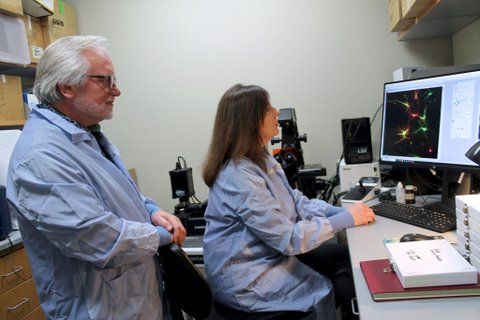By Tom Still
MADISON – I asked a top infectious disease expert at the
National Institutes of Health the other day for his take on why some parents
are choosing not to get vaccinations for their kids. His answer was simple
enough: Those parents have no memory of why such vaccinations became a public
health standard in the first place. They lack any first-hand knowledge of the
serious, sometimes fatal, nature of the diseases in question.
The current measles outbreak in the United States is a ready
example. Declared eliminated by public health authorities 15 years ago, measles
has come roaring back with about 650 cases last year and more than 100 cases
already in 2015 – the largest outbreak in 20 years.
About 25 years ago in Philadelphia, a major outbreak
sickened more than 1,400 children, nine of whom died. The Centers for Disease Control
and Prevention sent a team to Philadelphia at the time to determine whether the
strain of measles there was particularly virulent. The answer was no. It had
everything to do with parents who had refused to vaccinate their kids.
Parents who are raising children today don’t remember such
outbreaks, let alone dimly recalled family stories about polio, tuberculosis
and tetanus. They don’t know that measles leads to more than an annoying rash,
but difficulty in breathing, fever, dehydration – and even pneumonia and
encephalitis if left unchecked.
So why do some parents decline to vaccinate their children
against known dangers? The reasons vary – and they help to illustrate the gap
between science and society.
The most common anti-vaccination reason is religious belief.
All but two states, including Wisconsin, allow exemptions for religious
reasons. In Philadelphia in 1990-91, for example, more than a third of those
children infected and six of the deaths were tied to members of two churches.
Nineteen states – including Wisconsin – allow exemptions for
other health or “personal conviction” reasons. Such beliefs are sometimes cited
by parents who believe vaccinations can lead to autism, a fraudulent link that
has been discredited by researchers. That’s an exemption reason most often seen
in more liberal, affluent communities, such as Madison.
Writing recently in the New York Times, Dr. Saad Omar of
Emory University in Atlanta, Ga., noted that non-medical exemption rates were
2.3 times higher in states with easy administrative policies for granting
exemptions – Wisconsin was specifically mentioned – than in states with
difficult policies.
Of course, public skepticism about vaccines isn’t new. When
Edward Jenner introduced his smallpox vaccine more than 200 years ago, people
objected because they believed the vaccine – derived initially from a cowpox
culture – would turn them into cows.
Today, objections to vaccinations have become a political
issue, with some of the candidates for president stumbling over the science in
an attempt to satisfy the skepticism of core voters.
New Jersey Gov. Chris Christie, one of the potential
Republican candidates for president, was recently quoted as saying parents
“need to have some measure of choice” about vaccinating their children against
measles. His office later issued a statement clarifying his response: “… with a
disease like measles, there is no question kids should be vaccinated.” U.S.
Sen. Rand Paul, R-Ky., has also been an advocate for parental choice on
vaccinations.
Gov. Scott Walker has been unequivocal on the subject. Asked
by ABC News about the measles vaccination, Walker said: “Study after study has
shown there are no negative long-term consequences. And the more kids who are
not vaccinated, the more they’re at risk and put their neighbors’ kids at risk
as well.”
The political divide on vaccinations is symbolic of a larger
split between science and the public. A recent survey by the Pew Center for
Research showed significant gaps between the scientific community and the U.S.
public on evolution, eating genetically modified foods, global warming and
mandatory childhood vaccinations.
Vaccinations of all types come with certain, usually very
small, risks that parents should consider in consultation with medical
professionals. The larger question is whether states such as Wisconsin should
open the door for all manner of exemptions in the name of parental “choice” or
act to protect the larger public.


